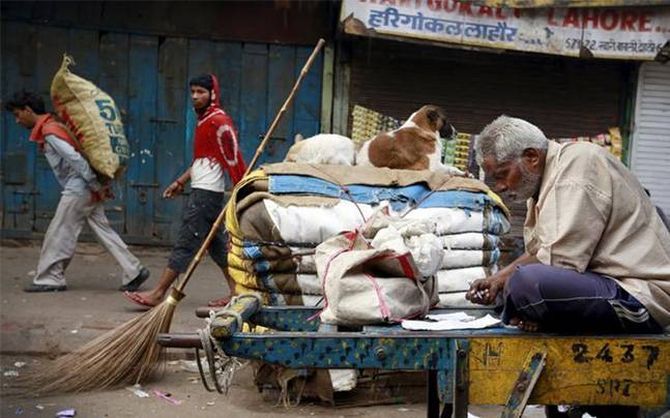Any business that makes inter-state supply is outside the ambit of the scheme

The National Capital Region (NCR), one of the biggest markets in the country, spanning three states - Delhi, Haryana, Uttar Pradesh - typifies the challenges for businesses that register under the composition levy scheme.
Applicable to certain categories of small taxpayers - traders, restaurants, and manufacturers/suppliers - whose annual turnover does not exceed Rs 75 lakh (Rs 50 lakh for certain states), the objective of the scheme is to make the new indirect tax regime simple with reduced compliance.
The tax rates range from 1 per cent for traders, 2 per cent for manufacturers, and 5 per cent for restaurant services. Under the scheme the taxpayer is required to file one return in each quarter.
However, attached to the scheme are riders that have stumped businesses. Any business that makes inter-state supply is outside the ambit of the scheme.
For instance, small businesses operating in the NCR face the brunt of this condition because their supplies often cross state borders.
Moreover, businesses registered under the scheme cannot claim input tax credit on their inward supplies. Similarly, supplies made by such businesses are not eligible for input tax credit.
The invoice issued under the scheme has to mention it’s for the “composition taxpayer and input tax credit not eligible”. This effectively puts businesses under this scheme outside the input tax credit chain.
“The break in the credit chain is making the scheme unattractive,” says Madhukar N Hiregange, partner, Hiregange & Associates. Many tax experts say small dealers and suppliers will lose business in the long run.
Once opted, the scheme applies for the entire financial year. “It is important for a taxpayer to cautiously evaluate its business requirement before opting for the scheme,” says Rajeev Dimri, leader, indirect tax, BMR & Associates.
The penalty for any breach of compliance or filing mistakes under the composition scheme is turning out to be a deterrent for small businesses.
A taxpayer is liable to pay tax at a standard rate on the turnover along with the penalty equal to the tax liability in the case of non-compliance.
There is also confusion in the minds of tax experts whether a small business owner who earns rental income or receives interest income would be eligible for registration under the composition levy scheme.
“That is the case in most proprietary firms,” says Arun Gupta, a chartered accountant, who has been advising small businesses on GST compliance.
However, Pallav Pradyumn Narang, partner, Arkay & Arkay, says that income earned from non-business activities, such as interest, will not impact the eligibility of people in availing themselves of benefits under this scheme.
Photograph: Rupak De Chowdhuri/Reuters











